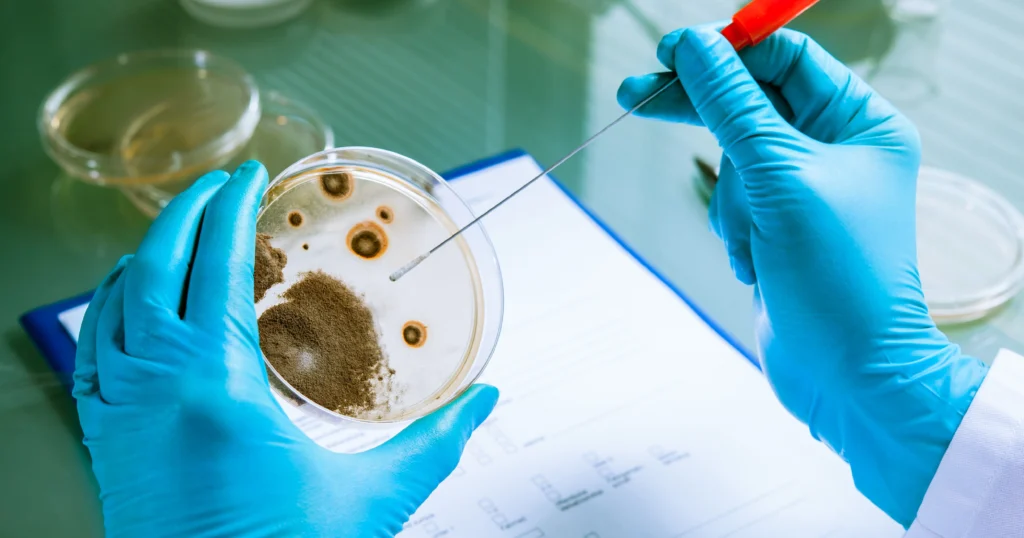Powerful Psychedelic Gains Renewed Attention as a Treatment for Opioid Addiction

According to a plethora of small-scale studies, ibogaine, a powerful psychedelic made from the root of a shrub native to Central Africa, has demonstrated remarkable efficacy in combating opioid addiction and crack cocaine dependency. Astonishingly, between one-third and two-thirds of individuals treated with ibogaine in therapeutic settings reported sustained abstinence from their addictive habits, often after just a single session. The compound’s multifaceted approach addresses both the physiological torment of withdrawal symptoms and the psychological craving for substances, instilling a newfound enthusiasm for sobriety among patients.
For Jessica Blackburn, a testament to ibogaine’s transformative potential, the compound not only rescued her from heroin addiction but also facilitated profound personal healing and self-reconciliation. Regrettably, the legal restrictions surrounding ibogaine in the United States pose significant barriers to access, compelling individuals like Blackburn to seek treatment abroad, often in unregulated environments lacking adequate medical oversight.
Reimagining Treatment
Dr. Deborah Mash, a professor of neurology at the University of Miami who has been studying ibogaine since the early 1990s, describes the compound as a potent “addiction interrupter,” capable of challenging entrenched patterns of substance dependency. However, regulatory hurdles and safety concerns have obstructed comprehensive investigations into ibogaine’s therapeutic potential.
Unlike traditional pharmacotherapies that focus solely on symptom management, ibogaine offers a holistic approach that addresses the underlying psychological and emotional roots of addictive behavior. By facilitating deep introspection and emotional processing, ibogaine empowers individuals to confront their past traumas and patterns of self-destructive behavior, paving the way for sustained sobriety and emotional well-being.
Central to the ibogaine experience is its capacity to induce spiritual awakening and existential insight. Through the lens of ibogaine-induced states of consciousness, individuals go on a journey of self-discovery and spiritual exploration, encountering insights and revelations about the nature of existence and the interconnectedness of all beings.
In addition to its spiritual dimensions, ibogaine therapy holds promise as a tool for emotional healing and psychological integration. By providing a safe and supportive space for individuals to explore their innermost thoughts and feelings, ibogaine facilitates deep emotional processing and resolution of unresolved traumas. A small study that was published earlier this year in the journal Nature Medicine found that a single ibogaine therapy session resulted in significant enhancements in disability, psychiatric symptoms, and cognition among military veterans with traumatic brain injuries. During this study, no adverse effects were reported. Dr Williams, the director of the Brain Stimulation Lab at Stanford University, states, “These are the most dramatic drug effects I’ve ever captured in an observational study.”
With that being said, because Ibogaine is known to induce an irregular heartbeat, which in severe cases can cause fatal cardiac arrest, other researchers remain skeptical of its potential as an accessible anti-addiction therapy. A researcher named William Stoops, who is a professor of behavioral science at the University of Kentucky that specializes in substance abuse disorders, said the cardiac risks make it a poor candidate for consideration.
The National Institute of Drug Abuse, which is part of the National Institutes of Health, has recently begun funding studies (not tested on humans) on ibogaine analogues, which are chemically related compounds that can provide therapeutic benefits without the risks to one’s health.
Setting the Course for Progress
As the desire for ibogaine research amplifies, policymakers and healthcare stakeholders confront pressing questions regarding its integration into mainstream addiction therapy. While proponents advocate for the allocation of resources towards clinical trials and regulatory approval, skeptics caution against overlooking ibogaine’s inherent risks and logistical challenges.
One of the biggest challenges confronting the widespread adoption of ibogaine therapy is all the regulatory hurdles it must navigate. The classification of ibogaine as a Schedule I substance presents a formidable barrier, limiting its accessibility for clinical research and therapeutic use. As policymakers and regulatory agencies deal with the complexities of drug scheduling and safety considerations, advocates push for a reconsideration of ibogaine’s legal status in light of its therapeutic potential.
Securing funding for rigorous clinical trials and scientific research is a pressing priority in the quest to unlock ibogaine’s full therapeutic potential. The scarcity of financial resources allocated to ibogaine research presents the need for concerted advocacy efforts aimed at garnering support from governmental agencies, philanthropic organizations, and private investors. By investing in robust research endeavors, stakeholders can generate empirical evidence to substantiate ibogaine’s efficacy, paving the way for regulatory approval and widespread adoption in clinical practice.
From academia and healthcare institutions to governmental agencies and patient advocacy groups, stakeholders must unite in a collective effort to advance ibogaine research and facilitate its integration into evidence-based treatment protocols.
Conclusion
The resurgence of interest in ibogaine therapy represents a new era in addiction and mental health care, offering hope to individuals battling addiction and trauma. From its ability to foster spiritual awakening and emotional healing to its promise as a catalyst for profound personal growth, ibogaine represents a shift in our approach to mental health care—one rooted in compassion, empathy, and a deep reverence for the inherent dignity and autonomy of each individual.
